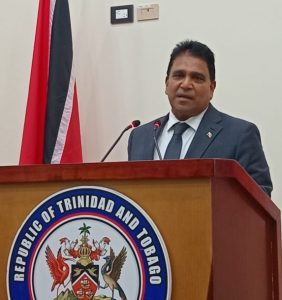Flashback: Venezuelan migrants registering outside the Queen’s Park Oval in 2019. AZP/Azlan Mohammed
By Sue-Ann Wayow
ALL new registrations, documentation renewal and refugee status determination procedures in Trinidad and Tobago with the United Nations will stop on Friday July 25, 2025.
The discontinuation of the new registration with the United Nations High Commissioner for Refugees (UNHCR) comes after the closure of the Trinidad and Tobago office which comes into effect on August 31 due to global funding shortages.
But support will still be provided and ongoing and future activities will be coordinated by UNHCR’s Multi-Country Office in Panama, with the support of two outposted personnel who will continue to operate locally at the UN House in Port of Spain, a media release from UNHCR on Wednesday stated.
Refugees and civil society organisations in Trinidad and Tobago met with UNHCR Representative for Belize, Cuba, Nicaragua, Panama, and the Central and Southern Caribbean Jose Egas, to strengthen advocacy efforts and explore
strategies for enhancing refugee protection in the country, the release stated.
During his visit, Egas met with key implementing and strategic partners, including La Casita Hispanic Cultural Centre and the Caribbean Centre for Human Rights, reaffirming the Agency’s commitment to supporting national stakeholders and civil society in identifying and advancing sustainable solutions for refugees.
He said, “Although we are closing our National Office in Port of Spain, our commitment to displaced communities in Trinidad and Tobago continues. We will continue working with partners and the government to strengthen the asylum system and ensure continued access to essential services and long-term solutions.”
Since 2016, UNHCR has registered over 37,900 asylum-seekers and recognised more than 3,300 as refugees in Trinidad and Tobago.
In collaboration with the government, civil society, the refugee community, and UN partners, UNHCR has facilitated access to public education, safe shelter, legal assistance, healthcare, cash support, vocational training, and protection for vulnerable groups, including women and children.
UNHCR states, “UNHCR remains committed to supporting its NGO partners in delivering essential services to asylum-seekers and refugees and will continue advocating for and assisting the government of Trinidad and Tobago in developing a national asylum system aligned with international standards.”
The organisation also called for sustained and flexible funding to meet growing humanitarian needs and ensure that people forced to flee are not left behind.
![]()













